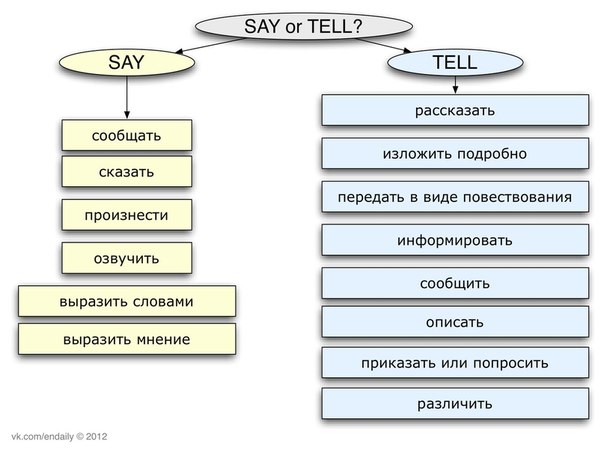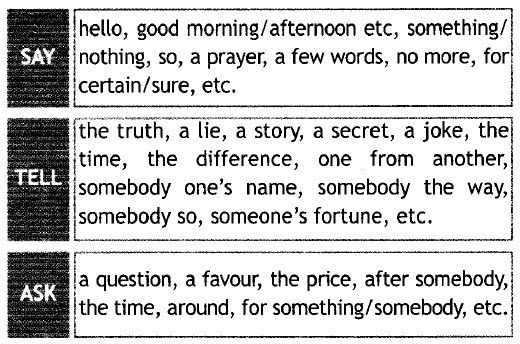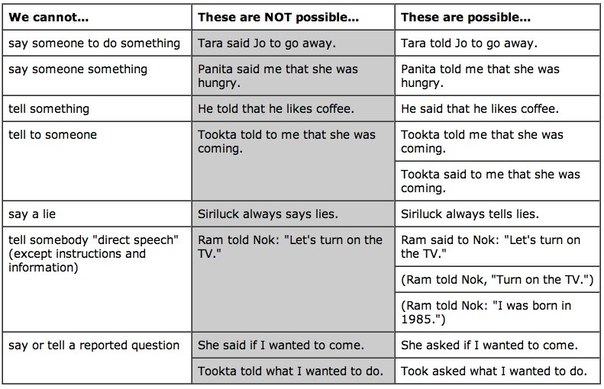
'tell'
'say'
'speak'?]
▶ With 'tell' we usually say who is told. You could say there is a personal object, so: 'Can you tell me what's happened?' We say, 'me'.
▶ We use 'tell' without a personal object in a few expressions, that are kind of fixed expressions like tell the truth, tell the time and tell the difference.
▶ We only use 'tell' to mean instruct or inform. 'I told him to wait for me on the platform'... that's an instruction. "My father used to tell me wonderful stories" - informing me.
• He told the news to everybody he saw
• ‘I’m ready to go now,’ he told her.
▶ With 'say' we don't usually say who is told. So you might say 'please say each word clearly and distinctly'. And if we do say who is told, we use the word 'to', so: 'He said goodbye to me as if we would never see one another again'.
▶ 'Say' can be used for any kind of talking. So here are three sentences where you could not use 'tell':
▶ And we use 'say' before words like a word, a name, or a sentence. An example would be: 'Don't say a word.'
• Не says he wants to come with us.
• Did he say that?
• She said 'Where have you been?'
• So I said what a good idea.
• Maureen said 'What's the matter?'
▶ We use 'speak' to mean 'talk formally', and when we do use 'speak', we use the word 'to' if there's a personal object. So you could say, 'I spoke to him severely' or 'She spoke to our teachers' association last year'.
• The President refused to speak to the waiting journalists.
• I saw her in the street but we didn’t speak.
• How many languages do you speak?
-

-
